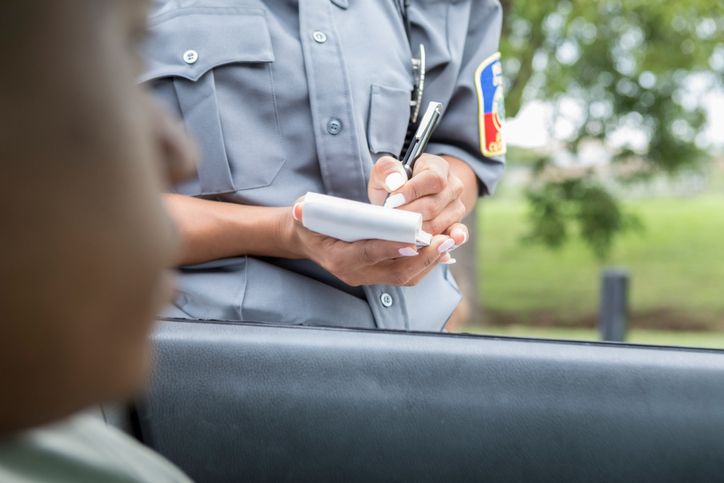Driving Without Insurance is Illegal in Colorado
Did you know that operating a car without insurance is against the law in Colorado? According to the Insurance Information Institute, Colorado is ranks 13th among states with uninsured drivers in 2019. 16 percent of Coloradans drive without insurance.
Colorado’s Mandatory Minimum Car Insurance
To legally get behind the wheel in Colorado, drivers must have and carry minimum insurance coverage. The minimum insurance coverage required by Colorado is 25/50/15:
- $25,000 for bodily injury per person
- $50,000 for bodily injury per accident
- $15,000 for property damage per accident
This coverage covers (or helps to cover) expenses related to the injury of the other driver and passengers in an accident. It also covers expenses related to damage to the other vehicle and wages lost by the other driver due to injury.
What Does “Minimum” Mean in Insurance Coverage?
For insurance coverage, the term “minimum” refers to the limit of expenses your coverage will pay. With Colorado’s minimum coverage, if your expenses exceed the 25/50/15 limit, then you are on the hook to pay the remaining expenses. While 25/50/15 is the minimum amount of liability coverage required in Colorado to legally operate a vehicle, most insurance companies will offer higher coverage limits in their insurance packages.
Additionally, in order to purchase or lease a vehicle, some lenders may require full coverage to qualify for financing or leasing terms.
The minimum insurance requirement will make it legal for you to drive, but it is a very small amount of money if you are in an accident. The current average cost of an overnight stay in a hospital room is around $12,000 per person. If you are financially responsible for someone’s medical bills after a car accident, $25,000 will not last long.
Similarly, the average new car now costs $48,000—the highest figure on record. If you are at fault in an accident that totals a vehicle of that value, you would be responsible for making up the difference between the minimum insurance you have and the value of the damaged property.
What Are the Penalties for Driving Without Insurance?
You can receive a citation for being unable to produce proof of insurance during an accident, regardless of fault, or at any routine traffic stop.
First Offense
The first time you are caught driving without coverage, the police officer can suspend and confiscate your driver’s license. They may choose not to do so, but you will still get a notice of suspension unless you provide an SR-22. An SR-22 is a vehicle liability insurance document that proves you have minimum coverage. Presence of an SR-22 on your driving record shows insurance companies that you are a risky driver, which will raise your premiums.
If you do not provide proof of insurance, the state can charge you with a class one misdemeanor. This charge comes with:
- a fine of at least $500
- suspended driving privileges until adequate coverage is obtained
- up to 40 hours of community service
You will also have to pay a $40 reinstatement fee to get your license back and submit an SR-22 for three years.
Second Offense
The second time you are found to be in violation of the insurance law within five years of the first violation, the fine increases to a minimum of $1,000. The court may also require 40 hours of community service, but it can also sentence to between 10 days and one year of jail time. Your driving privileges will also be suspended for four months, even after you’ve provided proof of coverage. Like the first offense, you’ll have to pay the $40 reinstatement fee and submit an SR-22 for three years.
Third Offense and Beyond
Drivers guilty of subsequent violations within five years of the previous violation will suffer, at best, the same penalties as the second violation, though the court can and will increase the penalties beyond the minimum of $1,000 and 10 days of jail. Your driving privileges will also be suspended for eight months instead of four.
False Information Penalties
In addition to the penalties for driving without insurance, if you provide false information about your insurance, it will be considered insurance fraud. This can result in up to three years in prison and a fine as much as $100,000.
Does Colorado Know if You Have Insurance?
The Colorado Department of Regulatory Affairs manages a verification system called Sircon. This system allows drivers and insurance companies to log policies and cancellations. The state uses Sircon to find out if drivers are complying with the state’s mandatory minimum insurance law. If a registered vehicle is in non-compliance, the system notifies the state, which will automatically mail a notice of non-compliance to the vehicle’s owner. The owner will be unable to renew their vehicle’s registration with the state without proper proof of insurance.
Get a Quote on a Farm Bureau Insurance Auto Policy
Avoid the unpleasantness of being uninsured in Colorado. Get a free quote on a quality car insurance policy full of benefits like roadside assistance.

